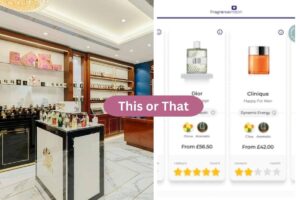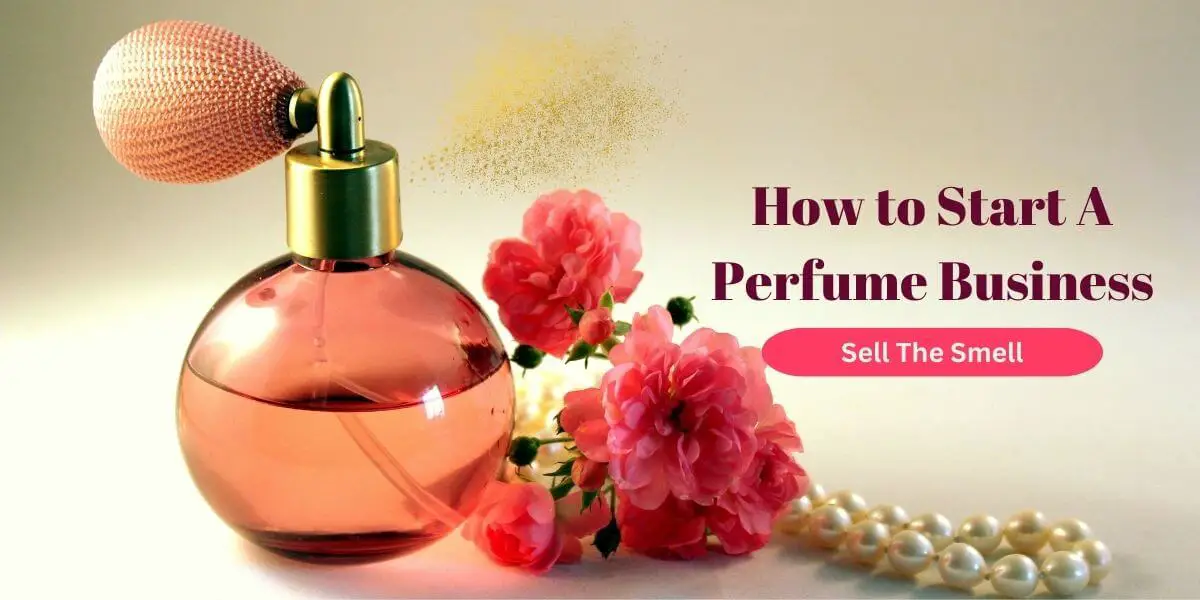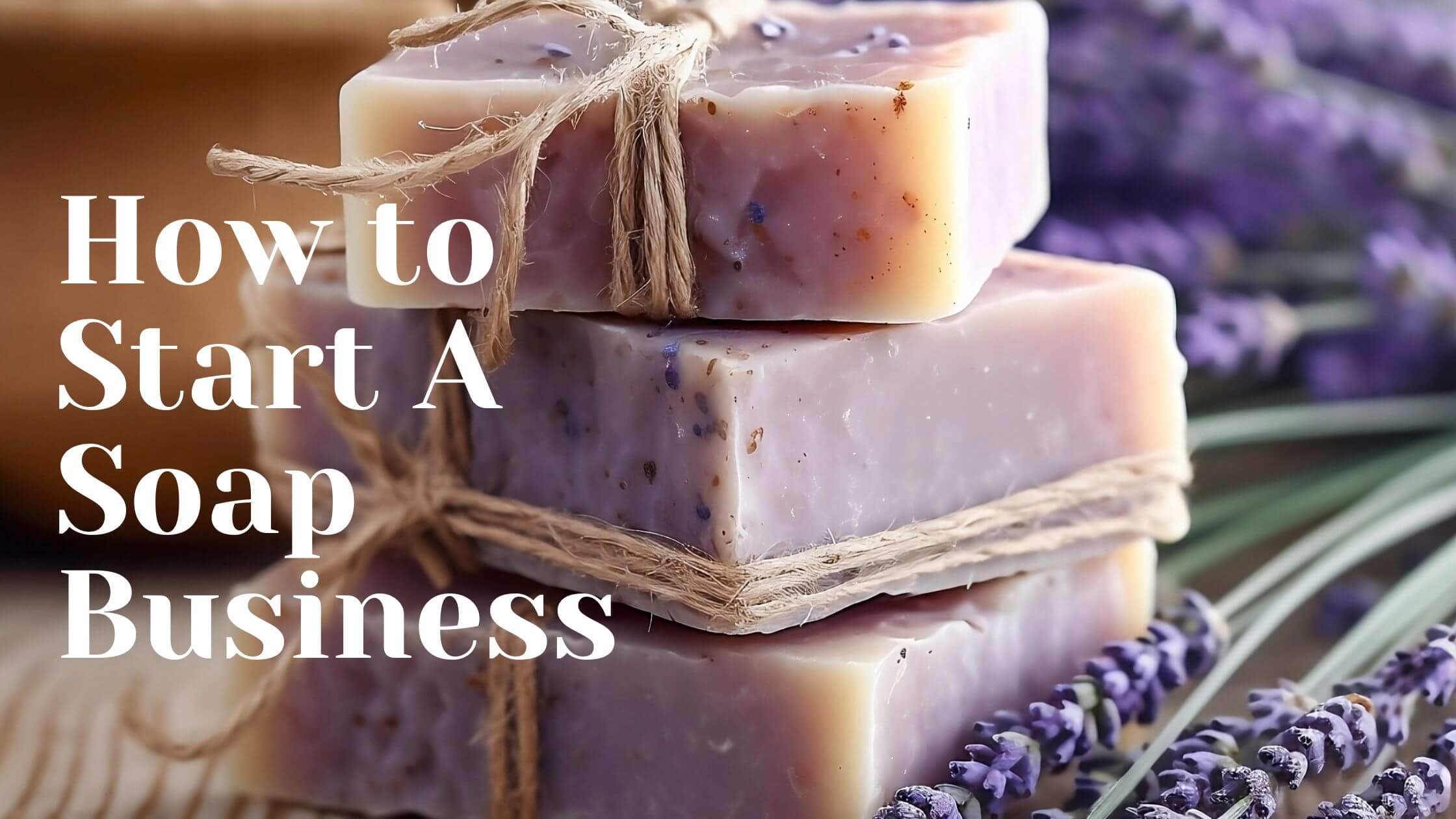Imagine walking into a room and leaving an unforgettable impression with just a hint of fragrance. Perfumes have the power to evoke emotions, memories, and style—and the world can’t get enough of them. The global perfume industry is booming, with millions of consumers seeking the perfect scent to express themselves. If you’re passionate about fragrances but not interested in making them from scratch, starting a perfume business as a seller could be your perfect opportunity.
You will be surprised to know that the value of the current perfume market is more than $54 billion in 2024. And according to the Statista, the value will be approximately more than $69 billion in 2029. So, grasp your share quickly to win.
In this guide, we’ll show you how to tap into this lucrative market by sourcing and selling a curated collection of perfumes. Whether you’re eyeing luxury brands or niche indie labels, you can create a unique brand that stands out in the fragrance world. Let’s dive into the captivating journey of becoming a perfume entrepreneur!
From Concept to Fragrance: A Step-by-Step Guide to Start A Perfume Business
Ready to turn your passion for scents into a thriving business? In this guide, I’ll walk you through every step of creating your own signature fragrance line, from developing your brand concept to launching your product. Let’s transform your ideas into captivating perfumes!
Step1: Research and Identify Your Target Market

Before you dive into selling perfumes, it’s essential to understand who you’ll be selling to. Perfume buyers range from those seeking high-end luxury scents to individuals looking for affordable everyday fragrances. Identifying your target market will help you choose the right products to stock and the best way to market them.
Do some market research to uncover consumer preferences. Are they drawn to well-known designer brands, niche indie labels, or environmentally-conscious, cruelty-free perfumes? Knowing this will allow you to tailor your offerings. If your customers are younger and more trend-focused, they might appreciate limited-edition collaborations and unique fragrances.
Alternatively, if your target is more mature and sophisticated, luxury and classic scents could be your best bet. The better you understand your audience, the more successfully you’ll cater to their desires and stand out in a competitive market.
Step 2: Sourcing Your Product: Where to Buy Perfumes for Resale

Now that you know who you’re selling to, the next step is finding the right products. As a perfume seller, your reputation will largely depend on the quality and variety of the fragrances you offer. So, sourcing your perfumes from reputable suppliers is critical.
You’ll need to decide whether you want to stock branded perfumes or go the private label route. With branded perfumes, you can partner with established companies to sell popular, recognized scents—brands people already love and trust. However, the profit margins may be smaller since you’re dealing with big names.
On the other hand, private labeling gives you more control over branding and pricing. You can work with a manufacturer to create custom perfumes under your own brand name, giving you the opportunity to create exclusive offerings. This route can be more challenging but also more rewarding, as it gives your business a unique edge. Building relationships with trusted wholesalers and ensuring quality control are key to maintaining a successful perfume business, no matter which route you choose.
Step 3: Creating a Unique Brand Identity
In a world where consumers are spoiled for choice, branding is everything. Selling perfume is about more than just the scent—it’s about the experience. Creating a strong brand identity will help you stand out and attract your target customers.
Start by designing your brand’s aesthetic. Think about your business’s name, logo, packaging, and overall vibe. Are you aiming for something sleek and luxurious or playful and youthful? The visual appeal of your brand plays a huge role in customer perception. Consider how your packaging looks on a vanity or how your logo stands out on social media feeds. The goal is to create an emotional connection with your customers, making them feel like your brand fits their lifestyle.
Your brand story is just as important as the look. Share what makes your business unique. Perhaps you focus on sustainable, cruelty-free perfumes, or maybe you curate only the most exclusive, hard-to-find scents. Whatever your focus, make sure it’s clear in your messaging so your customers know exactly what sets you apart from other perfume sellers.
Step 4: Setting Up Your Perfume Store: Physical, Online, or Both?

One of the first decisions you’ll face as a perfume seller is where to sell your products. Will you open a traditional brick-and-mortar store, start an online shop, or perhaps blend both models for a hybrid approach?
If you opt for a physical store, location is key. You want a spot where foot traffic aligns with your target market. The layout and ambiance of your store should match the experience you’re offering. Think about how you’ll display your perfumes—testing stations where customers can sample scents are a must. A well-curated, stylish space can turn a simple shopping trip into an immersive sensory experience.
Alternatively, an online store offers unparalleled convenience and the potential to reach a global audience. E-commerce platforms like Shopify or Etsy make it easy to set up shop, and social media can become a powerful marketing tool to promote your products. Creating a seamless online experience, from browsing to checkout, is crucial for capturing and retaining customers.
A hybrid approach—selling both online and offline—gives you the best of both worlds. You can engage with local customers while also reaching shoppers from afar. This strategy allows flexibility and scalability as your business grows. No matter where you choose to sell, your focus should always be on making the shopping experience easy, enjoyable, and memorable for your customers.
Step 5: Licensing and Legal Requirements
Starting a perfume business may seem glamorous, but there are some practical details you need to take care of before you can sell your first bottle. Ensuring your business complies with local regulations is an essential first step. The specific permits you’ll need depend on where you’re located, but in general, most perfume sellers will need a business license to operate legally.
Beyond the basic business license, you’ll also need to understand product safety regulations. Since perfumes are considered cosmetic products, there are labeling requirements you’ll need to follow. Labels must include the ingredients, potential allergens, and where the product was manufactured. Regulatory bodies like the FDA in the U.S. or the European Commission in the EU have strict rules about what can and cannot be included on perfume labels, so be sure you’re in compliance before going to market.
Handling product liability insurance is another important aspect. If someone has a negative reaction to a perfume you sold, you want to be protected legally and financially. Taking these steps early on will ensure your business runs smoothly and keep you out of hot water down the road.
Step 6: Marketing Your Perfume Business: Attracting Customers

No matter how amazing your perfume selection is, it won’t sell itself. Marketing is what will bring customers to your door, whether it’s a physical location or an online shop. In the fragrance world, it’s all about evoking emotion and creating desire, and your marketing efforts should reflect that.
Social media is one of the most effective tools for promoting your perfume business. Platforms like Instagram, TikTok, and Pinterest are highly visual, making them perfect for showcasing the beauty of your products. High-quality images, engaging videos, and influencer collaborations can build excitement and brand awareness. Instagram, in particular, is excellent for sharing behind-the-scenes content, new product launches, or customer testimonials. You can also partner with beauty influencers to help spread the word and give your brand credibility.
If you’re running a physical store, consider hosting in-store events like fragrance consultations or scent-making workshops. These events allow customers to experience your products firsthand, creating memorable interactions that build brand loyalty. Online, hosting giveaways or offering limited-time discounts can generate buzz and attract new customers. Email marketing is also a great tool for keeping your customers engaged. Sending newsletters with fragrance tips, exclusive offers, and updates on new arrivals keeps your brand at the forefront of your mind.
Step 7: Pricing Strategies: Balancing Profit and Customer Appeal

Pricing your perfumes is a delicate balance. You want to make a profit, of course, but you also need to ensure your prices align with your target market’s expectations. The pricing strategy you choose can make or break your business, so it’s important to get it right from the start.
Begin by analyzing your costs. This includes not just the wholesale cost of the perfumes themselves but also the cost of packaging, shipping, and any marketing expenses. Once you have a clear understanding of your costs, you can determine your desired profit margin. If you’re selling high-end luxury perfumes, customers expect to pay a premium price, so pricing them too low could actually hurt your brand’s image. Conversely, if you’re targeting budget-conscious buyers, you’ll want to offer affordable options while still maintaining a healthy profit margin.
Consider offering special promotions, such as bundles or loyalty discounts, to incentivize purchases. For example, you could offer a discount on a second purchase or create gift sets that bundle two or three fragrances at a slightly lower price. These types of offers can increase your sales volume while still keeping your brand’s value intact. As you grow, pay attention to your competitors’ pricing, but don’t be afraid to set your prices based on the quality of your product and the experience you’re offering.
Step 8: Customer Experience and Retention
In the perfume business, the customer experience is everything. From the moment a shopper encounters your brand, whether online or in-store, to the follow-up after purchase, every interaction shapes their impression of your business. Providing an exceptional customer experience is what will keep people coming back for more.
One of the best ways to enhance customer experience is through personalized service. Offering samples is a great way to help customers explore new scents without committing to a full-sized bottle. You can even provide fragrance consultations where you guide customers in choosing the right scent based on their personality, preferences, or the occasion. This personal touch not only boosts sales but also fosters loyalty.
For online shoppers, consider creating a subscription service where customers receive a curated selection of perfumes every month. This not only generates recurring revenue but also keeps your customers excited about discovering new fragrances. Offering free shipping, easy returns, and excellent customer support will further enhance the buying experience.
After the sale, keep the relationship going with email marketing and social media engagement. Send personalized thank-you emails, invite customers to leave reviews, and offer loyalty rewards for repeat purchases. These small gestures can turn a one-time buyer into a lifelong customer, and in the competitive world of fragrance retail, that kind of loyalty is gold.
Step 9: Scaling Your Perfume Business

Once your perfume business is up and running, it’s time to think about how to scale. Growth doesn’t happen overnight, but with the right strategy, you can expand your reach, increase sales, and turn your small operation into a recognized brand in the fragrance market.
One way to scale is by expanding your product range. If you’ve started with a selection of popular perfumes, consider adding niche or seasonal fragrances to attract a wider audience. You can also tap into current trends like eco-friendly or cruelty-free perfumes, which are increasingly in demand. Introducing limited-edition collections is another great way to create excitement and drive sales. Customers love the exclusivity of owning something that won’t be available forever, and this can keep them coming back to see what’s new.
If you have a physical store, expanding to additional locations could be a natural next step. However, online growth offers even more flexibility. With an online store, you can easily reach customers beyond your local area, making it possible to scale your business globally. Invest in digital marketing strategies to increase your online presence, such as search engine optimization (SEO), targeted ads, and influencer partnerships. Social media platforms can also help you scale by attracting new customers from around the world who resonate with your brand.
Building partnerships with established brands is another avenue for growth. If you’ve been selling independent or lesser-known perfumes, collaborating with well-known fragrance companies can boost your credibility and attract a new segment of buyers. Exclusive partnerships or carrying designer collections can elevate your store’s status and appeal to a luxury market.
As your customer base grows, it’s important to maintain high levels of customer service and satisfaction. This means scaling your operations, too, from inventory management to customer support. Implementing automated systems for order processing and investing in efficient logistics can ensure that your business runs smoothly even as sales increase.
Ultimately, scaling your perfume business is about seizing opportunities to evolve and grow while maintaining the quality and experience that made your brand special in the first place. With careful planning and a focus on innovation, your perfume business can reach new heights, opening doors to exciting ventures and a larger audience of fragrance lovers.
Don’t Wait To Start Your Perfume Business
Starting a perfume business is an exciting venture, blending creativity with commerce in one of the most sensory-driven industries. While you may not be crafting the scents yourself, you’re creating something just as valuable—a curated experience for your customers. From sourcing quality fragrances to building a unique brand identity and delivering exceptional customer service, you have the power to transform your passion for perfume into a thriving business.
By following the steps outlined in this guide, you’ll be well on your way to establishing a successful perfume store, whether it’s online, physical, or a hybrid. Remember, the key to success is understanding your market, offering products that resonate with your audience, and creating a memorable shopping experience that keeps customers coming back for more. The fragrance industry is vast and ever-evolving, but with dedication, a clear vision, and a touch of creativity, your perfume business can truly make its mark.
Now that you’ve got the blueprint, it’s time to take the plunge. The world is ready to experience the scents you have to offer—are you ready to get started?







